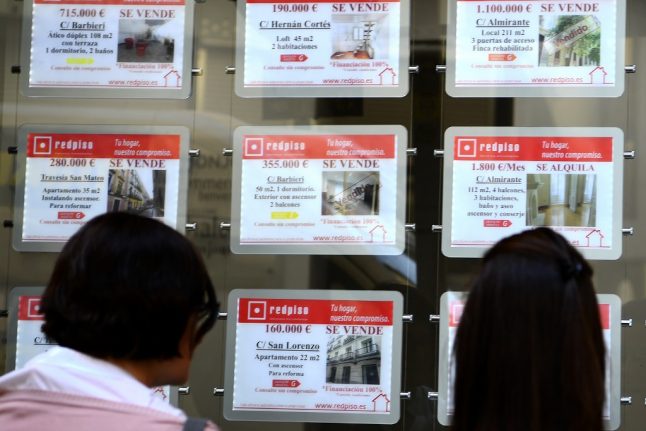Existing homes – not including new builds – cost 1.9 percent less in the second quarter of the year, compared to the same period of 2019, according to Fotocasa.
In comparison, Hogaria, which has a portfolio of 1.5 million homes, reported a 2.4 percent drop in prices.
The downward trend will probably accelerate in the second half of 2020, with the sharpest falls like to be seen in rural markets, both companies said.
Mark Stucklin, a property consultant who runs the independent Spanish Property Insight website, told The Local: “The situation is in such flux at the moment but from what I have seen I expect to see double-digit falls in the price of houses this year.
“It is so hard to predict but remember after the financial crash of 2008, house prices fell around 30%.”
The graphic below is from Spanish Property Insight



 Please whitelist us to continue reading.
Please whitelist us to continue reading.
Member comments